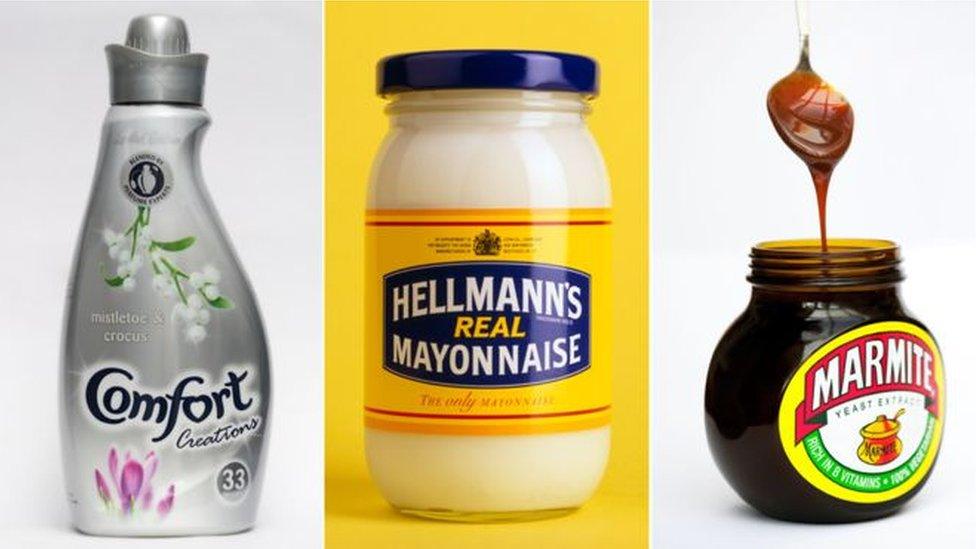Tesco and Unilever end price dispute
- Published
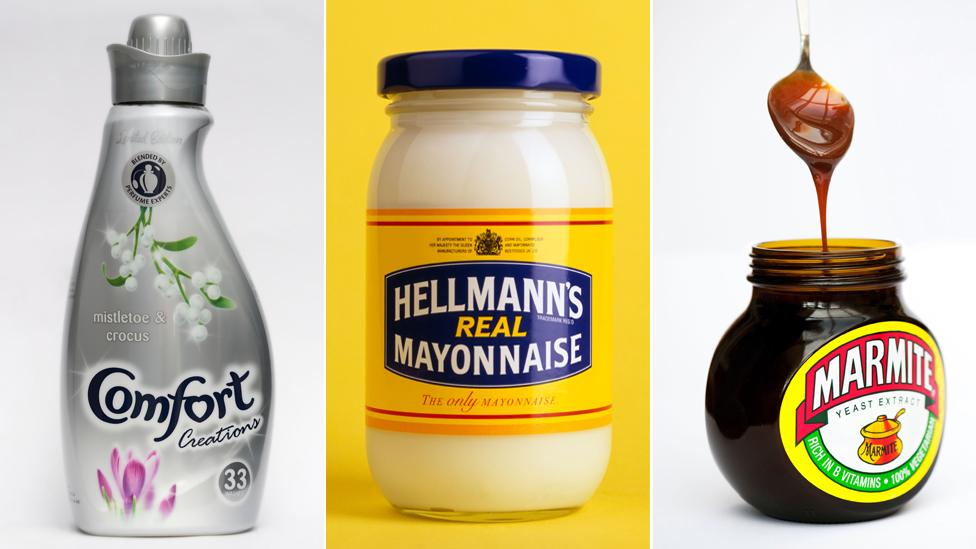
Issues surrounding the supply of leading brands including Marmite to Tesco have now been resolved, Unilever has said.
The supermarket giant and the UK's largest food manufacturer had been locked in a battle over wholesale prices.
Unilever had wanted to raise its prices by about 10% to compensate for the steep drop in the value of the pound.
But Unilever had to give some ground, the BBC understands.
Brands including Hellmann's Mayonnaise had been removed from Tesco's website.
"Unilever is pleased to confirm that the supply situation with Tesco in the UK and Ireland has now been successfully resolved," Unilever said.
"We have been working together closely to reach this resolution and ensure our much-loved brands are once again fully available. For all those that missed us, thanks for all the love."
Retailers warn over Brexit price rises
Unilever and Tesco at loggerheads
A Tesco spokesman said: "We always put our customers first and we're pleased this situation has been resolved to our satisfaction."
Tesco had earlier on Thursday halted online sales of top-selling goods produced by Unilever such as Persil washing powder, Ben & Jerry's ice cream and Marmite yeast extract spread.
The BBC understands that those products should be available on the Tesco website again in the coming days.
Supermarket chain Asda said it too had successfully negotiated with Unilever.
An Asda spokesperson said: "We pride ourselves on having famously low prices for customers every day and work tirelessly with our suppliers to keep prices low".
Bruno Monteyne, a former senior Tesco executive who is now an analyst at Bernstein, said Tesco has typically one to two weeks' stock.
"While politicians can deny reality, a shampoo produced on the continent is now more expensive," he said. "This isn't about Tesco or Unilever, but about all UK retailers and suppliers."
Supermarkets frequently renegotiate supplier prices, but it is unusual for a dispute to be made public.
Sterling has dropped by about 16% against the euro and 19% against the dollar since the UK's vote in June to leave the EU.
The sharp drop has left suppliers and retailers dealing with the effects of higher bills for imported goods.
Unilever is the UK's biggest grocery manufacturer, but as many of its products are made outside the UK, it had argued it should be getting more.
Supermarket profit margins have already been squeezed by a long-running price war as the big established retailers try to stem the loss of market share to discounters such as Lidl and Aldi.
- Published14 October 2016
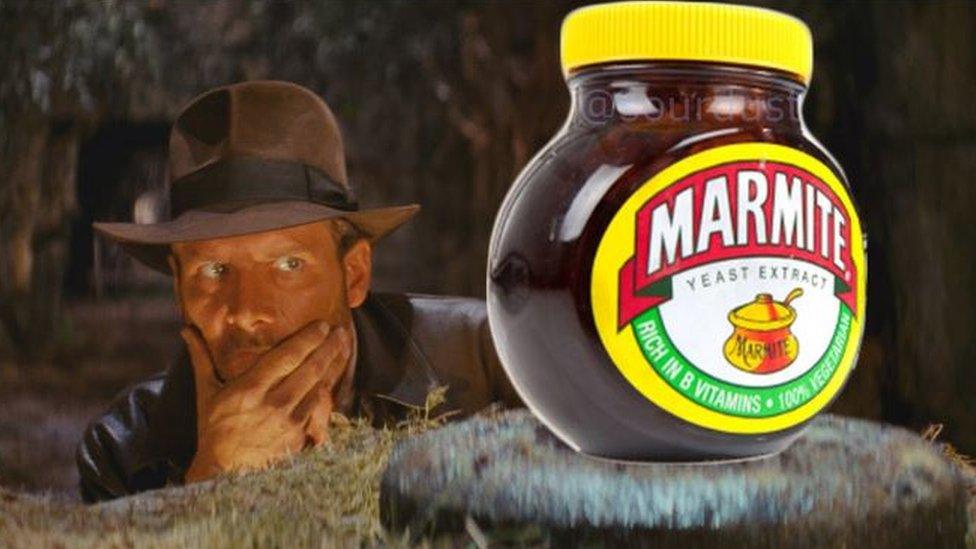
- Published13 October 2016
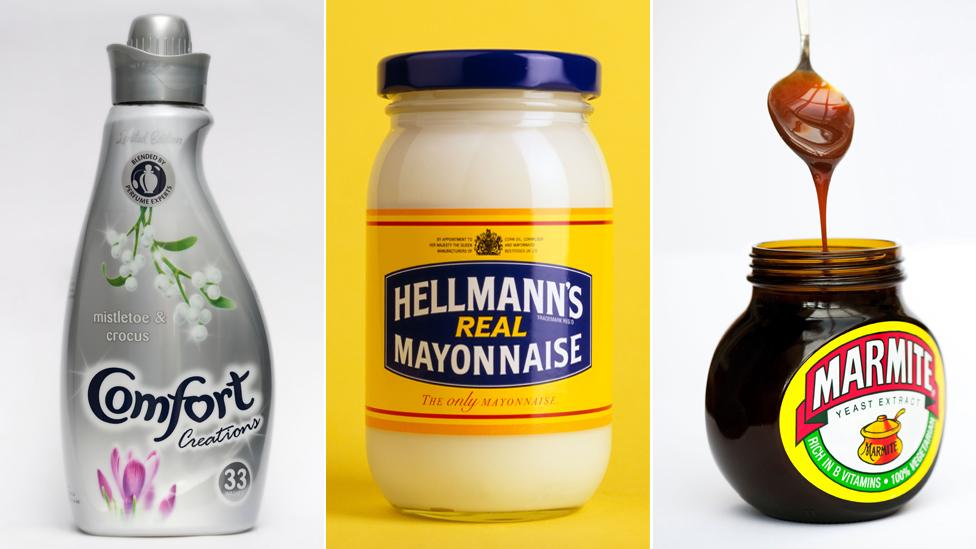
- Published13 October 2016
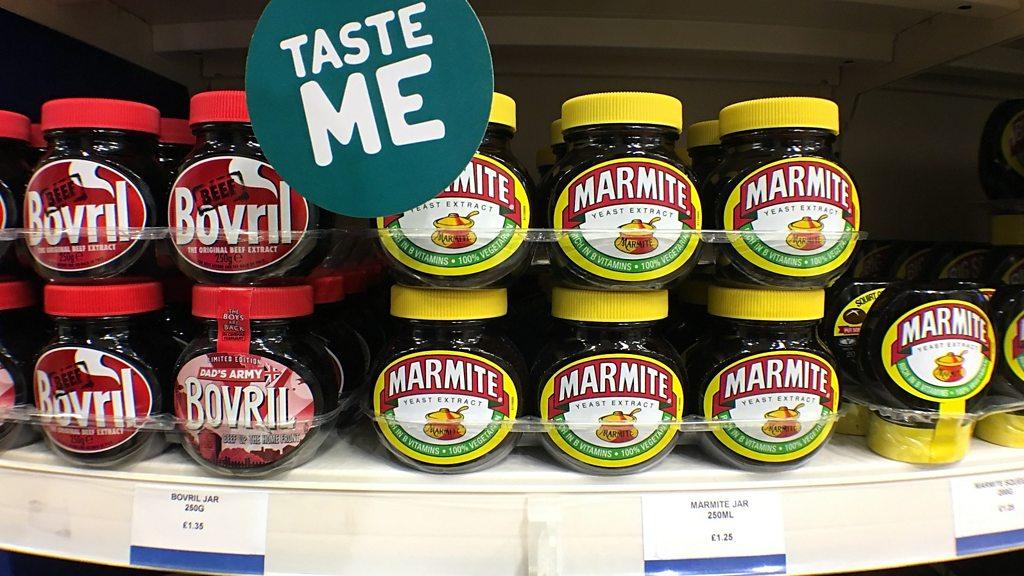
- Published13 October 2016
